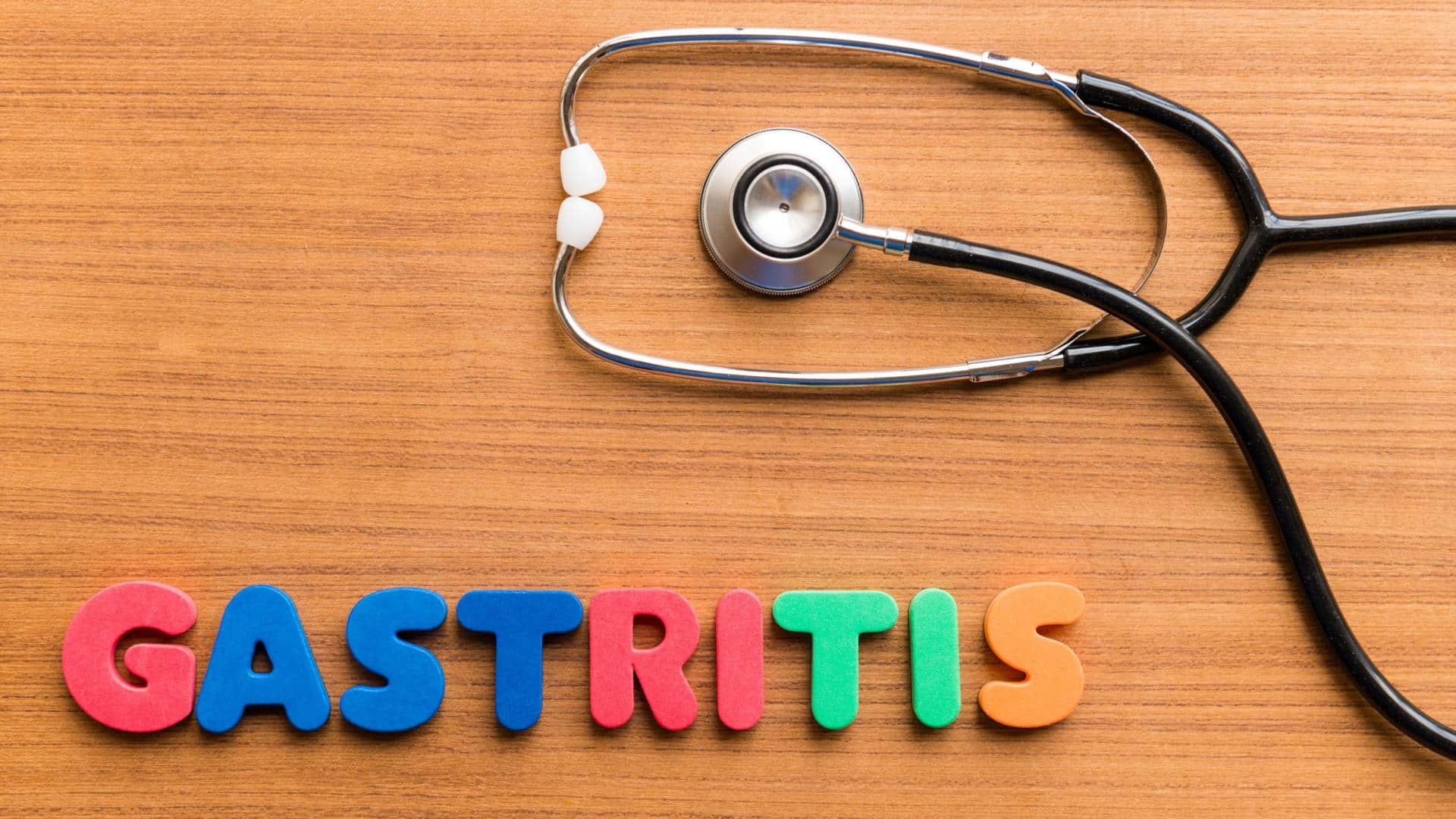
Gastritis: Causes, symptoms, prevention, and treatment
What's the story
'Gas' what? It is a common ailment that can happen to anyone.
Gastritis is a health condition that involves the inflammation of the stomach lining. It leads to stomach aches, bloating, indigestion, acidity, acid reflux, and nausea.
Additionally, it can come in as a sudden acute condition or gradual chronic suffering.
From its causes to treatments, here is everything you should know about gastritis.
Overview
Let us understand how gastritis happens
The human stomach is blessed with a protective lining of mucus which is called the mucosa.
The lining keeps our belly safe from the strong stomach acid that helps in the digestion of food.
When the mucosa becomes weak or thin or gets damaged, the acid around causes irritation or inflammation. That's when gastritis happens.
The risk of this disease increases with age.
Causes
Alcohol, medication reaction, and stress are the leading causes
A bacteria called Helicobacter pylori is the most common bacterial cause of gastritis. It breaks down the mucosa and causes inflammation.
Another cause of this health condition includes alcohol abuse, which can erode the stomach lining.
In some cases, certain medicines can also cause a reaction that disturbs the functioning of the mucosa.
Stress is one of the biggest yet the most underestimated cause.
Symptoms
Vomiting, upper abdominal pain, and black stool are some signs
The symptoms of gastritis vary from person to person depending upon the cause and intensity. Some diagnosed may not even show any signs.
People with this condition may experience nausea, vomiting, and a loss of appetite.
They may also go through pain in the upper abdomen, bloating, black and tarry stools, sudden weight loss, stomach ulcers, and abdominal discomfort.
Prevention
Prevention includes managing stress, losing weight, and reducing caffeine intake
Preventing yourself from developing gastritis demands certain lifestyle changes.
Steer clear of fried, spicy, fatty, and acidic foods as they can disturb digestion, resulting in both indigestion and gastritis.
Additionally, you should also cut down on your caffeine intake and alcohol consumption.
Eat smaller meals throughout the day and don't stay hungry.
Manage stress as it is one of the leading causes of gastritis.
Treatment
Medicines can kill bacteria and ease symptoms
Your healthcare provider may prescribe you certain medicines that can ease your symptoms and keep you away from developing any complications.
The medication may include antibiotics to treat bacterial infections and antacids to relieve inflammation.
In addition to this, there are certain blockers and inhibitors that your doctor may suggest. These decrease the production of stomach acid.